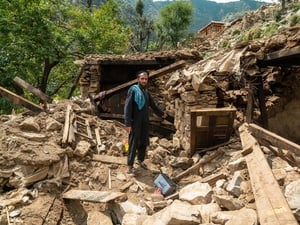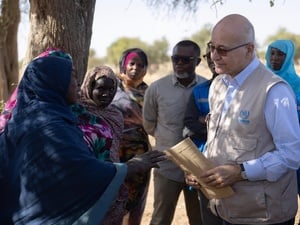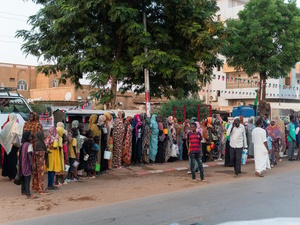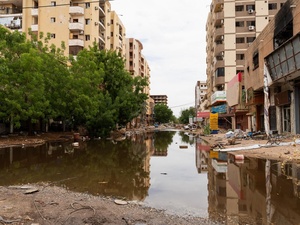Chad: Second assessment mission prepares to fly out
Chad: Second assessment mission prepares to fly out
A second mission consisting of Chadian government officials, UN agency and NGO representatives is set to fly out from the Chadian capital, N'Djamena, to eastern Chad tomorrow (Sept. 10) to carry out a rapid assessment of needs of more than 65,000 Sudanese refugees who have arrived in the towns of Abéché and Farachallah, both in the east of the country, and surrounding areas. The refugees, who began arriving in small numbers in April this year, have fled fighting between Khartoum government forces and Sudan's Liberation Movement (SLM) in the Darfur region of western Sudan. Tens of thousands of refugees of them arrived in the last few weeks. The government of Chad only recently alerted UNHCR to the presence of the refugees.
The plane to be used in tomorrow's mission is an in-kind donation from the French government in support of the efforts being made by the humanitarian community to respond rapidly to the pressing needs of the refugees. We are in the process of sending an initial consignment of basic domestic supplies, or non-food items, for 40,000 refugees from our regional stockpile in Ngara, Tanzania. We expect to have a more comprehensive picture of the needs upon the return of tomorrow's mission, which is expected back in N'Djamena on Thursday.
The first government/UN mission that went to eastern Chad last week confirmed the presence of more than 65,000 Sudanese refugees. They were living out in the open with no food, safe drinking water or health care. Many had no shelter, blankets or plastic sheeting to protect them from the desert weather that ranges from blazing heat during the daytime to chilly temperatures at night. Some children had reportedly died of malaria, diarrhoea and starvation. Some local people have given the refugees food but last week's mission found that the capacity of the local population had been outstripped by the large numbers.









